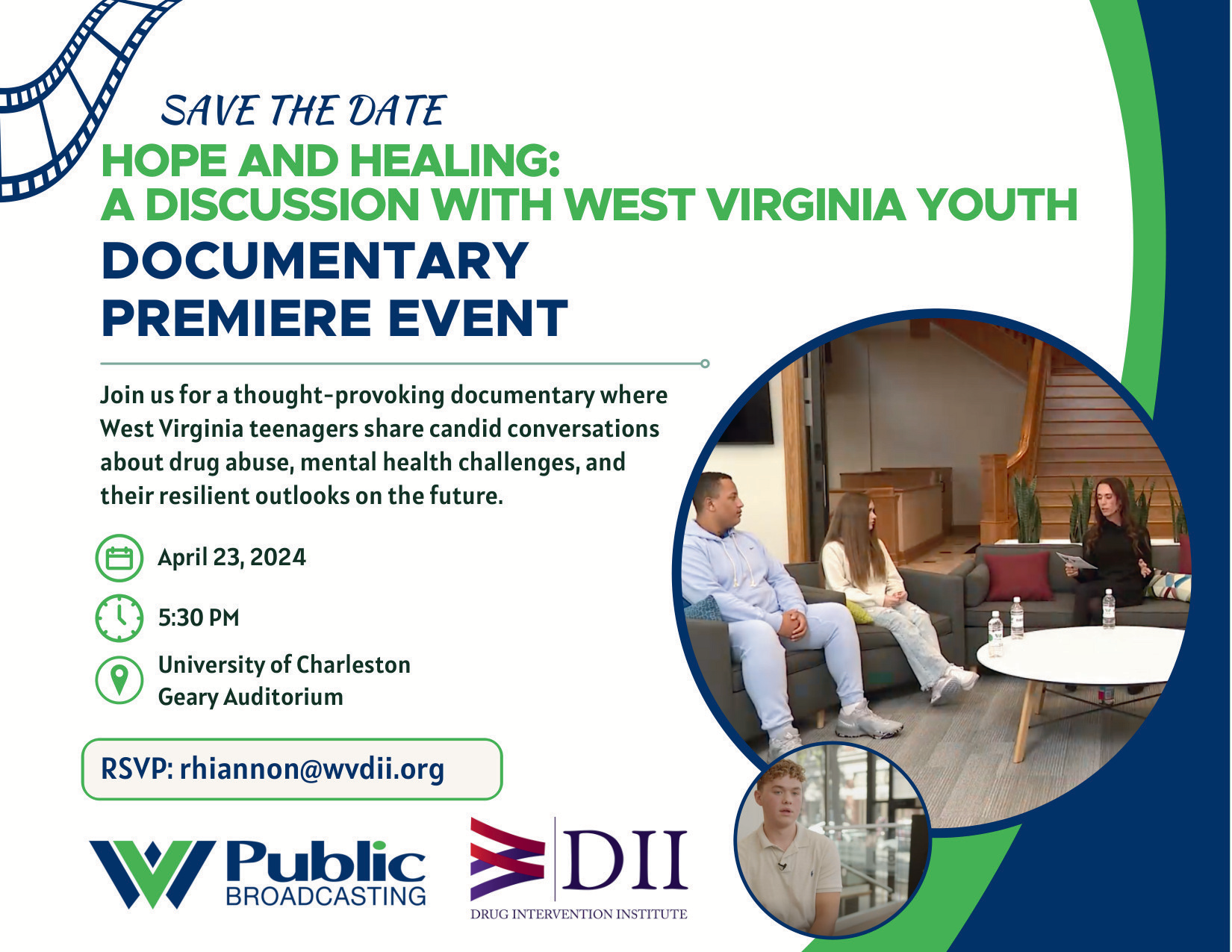An eye-opening documentary illuminating teen struggles presented by West Virginia Public Broadcasting and the West Virginia Drug Intervention Institute
Charleston, WV – (April 1, 2024) – A video project with West Virginia youth talking about issues they face, ranging from social media to substance use disorder, will premiere at a public screening in April at the University of Charleston.
“Hope and Healing: A Discussion with West Virginia Youth” is a collaboration between West Virginia Public Broadcasting and the West Virginia Drug Intervention Institute (WVDII). Youth from West Virginia gathered for the project to talk about issues they face on topics including substance use disorder, bullying, social media, and mental health. The project will be screened on Tuesday, April 23, at 5:30 p.m. at the University of Charleston’s Geary Auditorium. The screening is free and open to the public.
The project will broadcast statewide on WVPB Television on Monday, April 29, at 9 p.m. and will be available on all WVPB’s streaming platforms, including the PBS App, YouTube, and at wvpublic.org.
“These teens had very open and honest conversations about their struggles and of those around them to educate other teenagers and adults better,” said Heather McDaniel, WVDII’s vice president.
Filmed at the University of Charleston’s new downtown innovation center, the project underscores the importance of listening to youth voices and understanding their perspectives. It features candid discussions with middle and high school students in West Virginia. The youths express what they wish adults knew about navigating life in today’s world, from discussing their encounters in schools to offering advice on effective communication and prevention strategies. The participants engage in a thought-provoking roundtable discussion aimed at fostering empathy and awareness.
“We believe ‘Hope and Healing’ has the power to spark important conversations and drive positive change in our communities,” said Maggie Holley, WVPB’s director of Education.
The WVPB Education Department and the WVDII encourage guidance counselors in school systems throughout the state to use this video and accompanying activities as a resource.
Those interested in attending the screening at the University of Charleston on April 23 should RSVP to rhiannon@wvdii.org.
For more information about the West Virginia Drug Intervention Institute, contact President Susan Bissett at susan@wvdii.org or Vice President Heather McDaniel at heather@wvdii.org.
For more information about West Virginia Public Broadcasting’s education programs, contact education@wvpublic.org.
Watch the promotional trailer for Hope and Healing using this link or click below.
###
About the West Virginia Drug Intervention Institute
Located in Charleston, West Virginia, the mission of the Drug Intervention Institute is to reduce opioid and drug-related deaths in Appalachia and the nation by (a) preventing substance use through education (b) reducing overdose through training and distribution related to naloxone and other opioid reversal agents, and (c) supporting harm reduction and other drug-response efforts.
About West Virginia Public Broadcasting
West Virginia Public Broadcasting is dedicated to Telling West Virginia’s Story through its state radio and television network and online platforms. WVPB’s mission is to educate, inform and inspire the people of West Virginia. WVPB is the Mountain State’s only source for national NPR and PBS programming.
